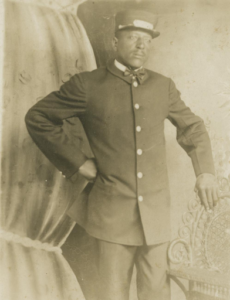
Voice and Viewpoint Newswire
The 2025 Black History Month theme, African Americans and Labor, focuses on the various and profound ways that work and working of all kinds – free and unfree, skilled, and unskilled, vocational and voluntary – intersect with the collective experiences of Black people. Indeed, work is at the very center of much of Black history and culture.

Africans were brought to the Americas to be enslaved for their knowledge and serve as a workforce, which was super-exploited by several European countries and then by the United States government. During enslavement, Black people labored for others, although some Black people were quasi-free and labored for themselves, but operated within a country that did not value Black life.
After fighting for their freedom in the Civil War and in the country’s transition from an agricultural-based economy to an industrial one, African Americans became sharecroppers, farm laborers, landowners, and then wage earners. Additionally, African Americans’ contributions to the built landscape can be found in every part of the nation as they constructed and designed some of the most iconic examples of architectural heritage in the country, specifically in the South.
Over the years to combat the super-exploitation of Black labor, wage discrepancies, and employment discrimination based on race, sex, and gender, Black professionals (teachers, nurses, musicians, and lawyers, etc.) occupations (steel workers, washerwomen, dock workers, sex workers, sports, arts and sciences, etc.) organized for better working conditions and compensation.

Solidarity for Worker’s Rights
An example of Black labor would be The Pullman Porters. They formed the nation’s first African-American union and became a leading collective voice for the Black working class.
During World War II, Mary McCloud Bethune, along with A. Philip Randolph and Eleanor Roosevelt lobbied President Franklin Roosevelt to stipulate government contracts for the war must hire people of color and women.

Pullman Porters occupied a coveted position in Black communities in the late 19th and early 20th century. These workers, typically Black men, would assist with luggage, maintain sleeping quarters, and serve passengers in the Pullman Palace Car Company’s luxury sleeping cars. The pay was higher than most other employers at the time, travel was possible, and many were able to move on to better jobs in hotels and restaurants.
However, the position did not come without discrimination and racism. George Pullman wanted Black porters, specifically those who were formerly enslaved, because he believed they would work under harsh conditions and would attend to every need of passengers. Porters were often called “boy” or “George” instead of their own names, and they were commonly berated or harassed by customers in the cars.
The Pullman maids were a lesser-known employee of the company: Black women who would clean Pullman cars and cater to guests. They typically worked with women, the elderly, and the infirmed. They often received lower wages from tips than Pullman Porters who worked in cars with businessmen and politicians.

2025 marks the 100-year anniversary of the creation of Brotherhood of Sleeping Car Porters and Maids by labor organizer and civil rights activist A. Philip Randolph, which was the first Black union to receive a charter in the American Federation of Labor. Martin Luther King, Jr incorporated issues outlined by Randolph’s March on Washington Movement such as economic justice into the Poor People’s Campaign, which he established in 1967. For King, it was a priority for Black people to be considered full citizens.
The theme, “African Americans and Labor,” intends to encourage broad reflections on intersections between Black people’s work and their workplaces in all their iterations and key moments, themes, and events in Black history and culture across time and space and throughout the U.S., Africa, and the Diaspora. Like religion, social justice movements, and education, studying African Americans’ labor and labor struggles are important for organizing new interpretations and reinterpretations of the Black past, present, and future. Such new considerations and reconsiderations are even more significant as the historical forces of racial oppression gather new and renewed strength in the 21st century.
Sources: asalh.org and nmaahc.si.edu

CHECK OUT THESE FREE BLACK HISTORY MONTH RESOURCES FROM THE SMITHSONIAN AND THE LIBRARY OF CONGRESS
- BLACKHISTORYMONTH.GOV https://blackhistorymonth.gov/
- AFRICAN AMERICANS AT WORK https://nmaahc.si.edu/explore/stories/african-americans-at-work#Pullman
Virtual Event
Meditation Mondays: With These Hands
Monday, February 17, 2025, 12:15 p.m. to 1:00 p.m.
Register for this FREE event online at si.edu/events/detail


